Photos from families ripped apart by the Holocaust
- Published
Tragic stories from the Holocaust are brought to life by Centropa, a Jewish organisation that has interviewed 1,200 elderly Jews in Central and Eastern Europe.
Centropa made copies of family photos, including more than 3,000 of relatives murdered by the Nazis. Hundreds of them died at Auschwitz-Birkenau death camp. Some of the photos are presented here.
Holocaust Memorial Day is 27 January - and this year it is the 75th anniversary of the camp's liberation by Soviet troops. Nazi Germany murdered about 1.1 million people at the vast Auschwitz-Birkenau complex, nearly a million of them Jews.
Poland
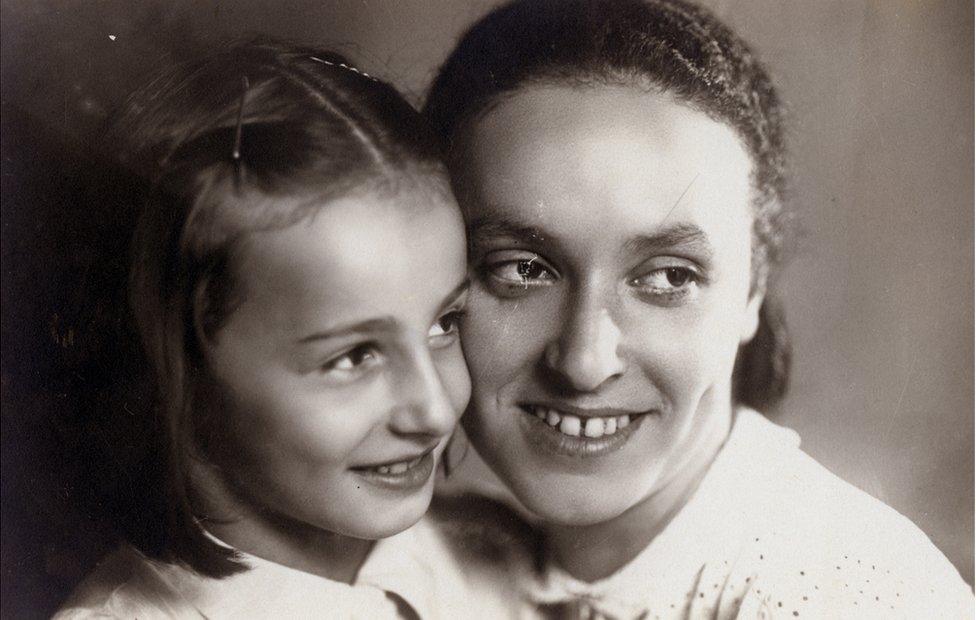
Julian Gringras: "This is a photo of my younger sister Bala and my niece Giga. It was taken in 1938 in Kielce.
"Bala was maybe 18 at the time. I was very fond of her, [she was] a very lively, intelligent girl, active, very handsome, in my view. Nice eyes, and she had dimples.
"The girls worked in the photography studio; I think they spent some time learning retouching.
"Both the girls went to the Birkenau camp. They were liquidated by the Germans very quickly."

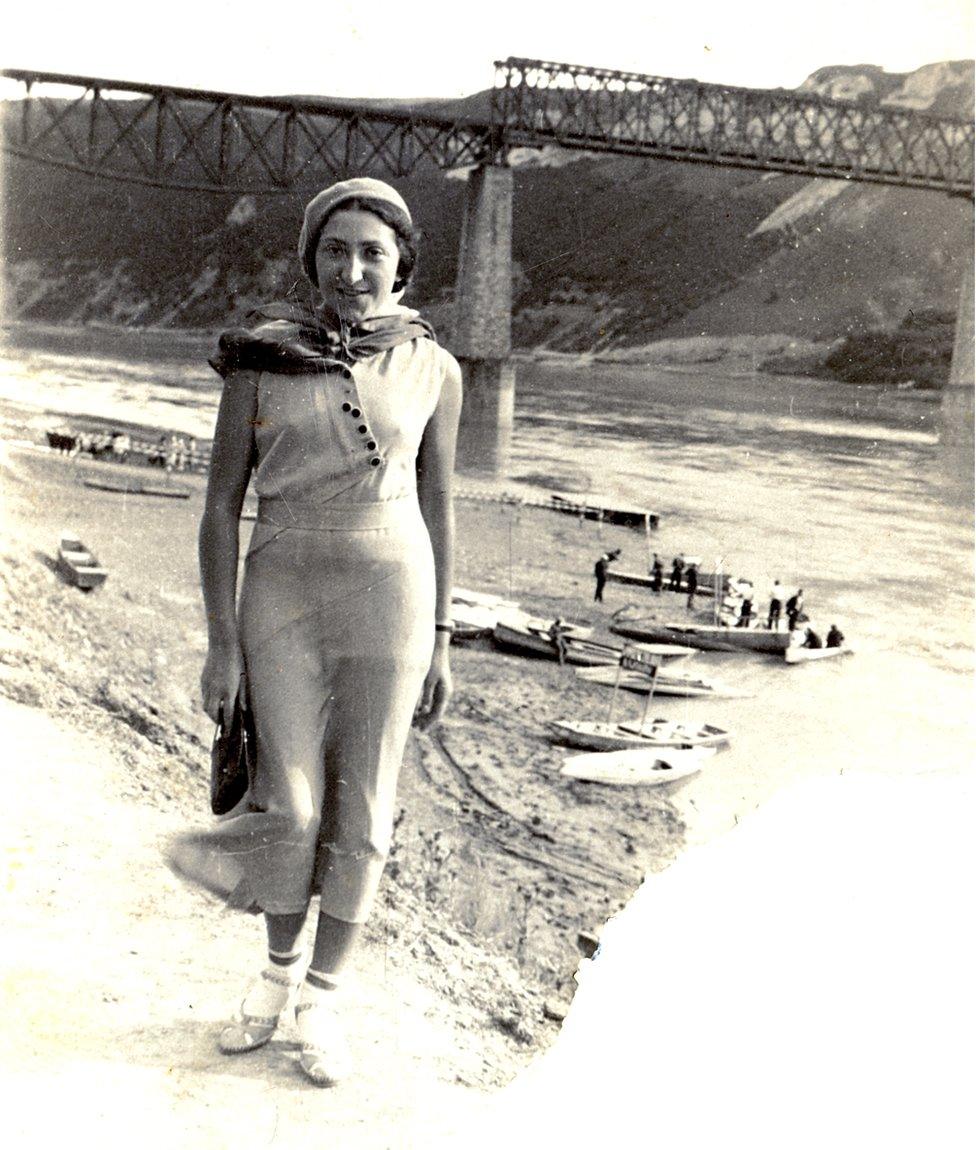

Irena Wygodzka: "Estusia was my favourite cousin. We loved each other very much.
"Estusia was a charming, intelligent girl. She was self-taught and very radical, progressive.
"Her father was very religious, he had this long beard, but she sympathised with the communists. She didn't belong to the party, but she had a whole group of friends with whom she met and discussed political issues.
"In any case, Estusia and her parents were deported directly to Auschwitz and I was told they were gassed on arrival."
Read more about the Holocaust:

Czech Republic (former Czechoslovakia)
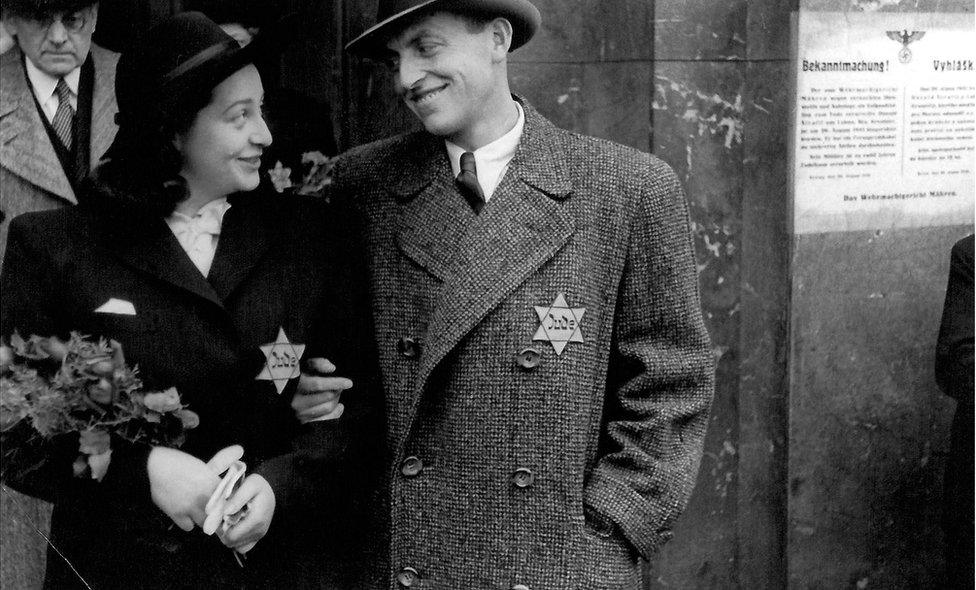
Anna Hyndrakova: "This photo was taken in Prague in October 1941, on the wedding day of my sister Gertruda to Frantisek.
"Frantisek was born in 1916; he worked as a chief clerk and was in the coal business. By the time I met him he was no longer allowed to do his job because he was Jewish. The three of us lived together.
"I didn't like him at first, because at 13, I was left doing the dishes every night. But one of them must have read my diary because he started coming into the kitchen after that and said things like 'You're my sister-in-law' and 'Dear sister-in-law', so I liked him a lot then.
"It was only a few weeks before he was deported to a work camp in Lipa and then to Terezin [called Theresienstadt in German - a Jewish ghetto and concentration camp].
"My sister went to Terezin in December 1941. That's where she and Frantisek met again and in 1943, they had a baby, Jana Ivana.
"We were all deported to Auschwitz at different times, including my mum and dad. I'm the only one who came home."

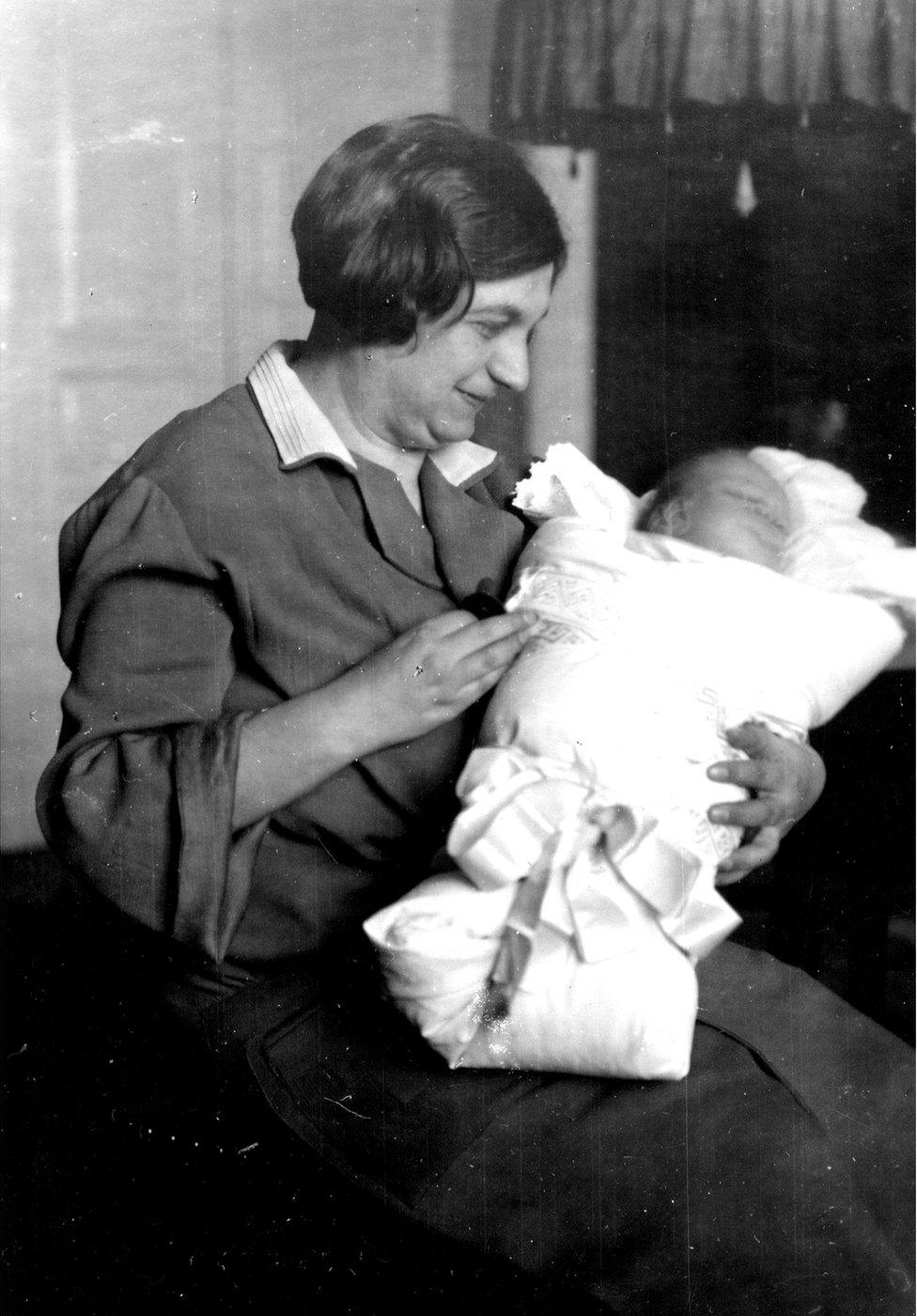

Toman Brod: "[This is] my mother Olga Brodova and my brother Hanus. The photo is from 1927. I was born two years after him.
"My mother had a completely calm disposition... the children could romp about and yell and she would sit at the table and crack nuts.
"But our father was somewhat more nervous, hot-tempered. Father died young, in 1938.
"My mother, brother and I were deported to Terezin on 27 July 1942.
"My mother adapted quite well to the conditions in Terezin and worked as a nurse for mentally and physically handicapped children.
"We left Terezin on the December transport in 1943, for Auschwitz. I ended up in work camps and was finally liberated at the end of the war.
"As for my brother and mother, I believe they were murdered in 1944."

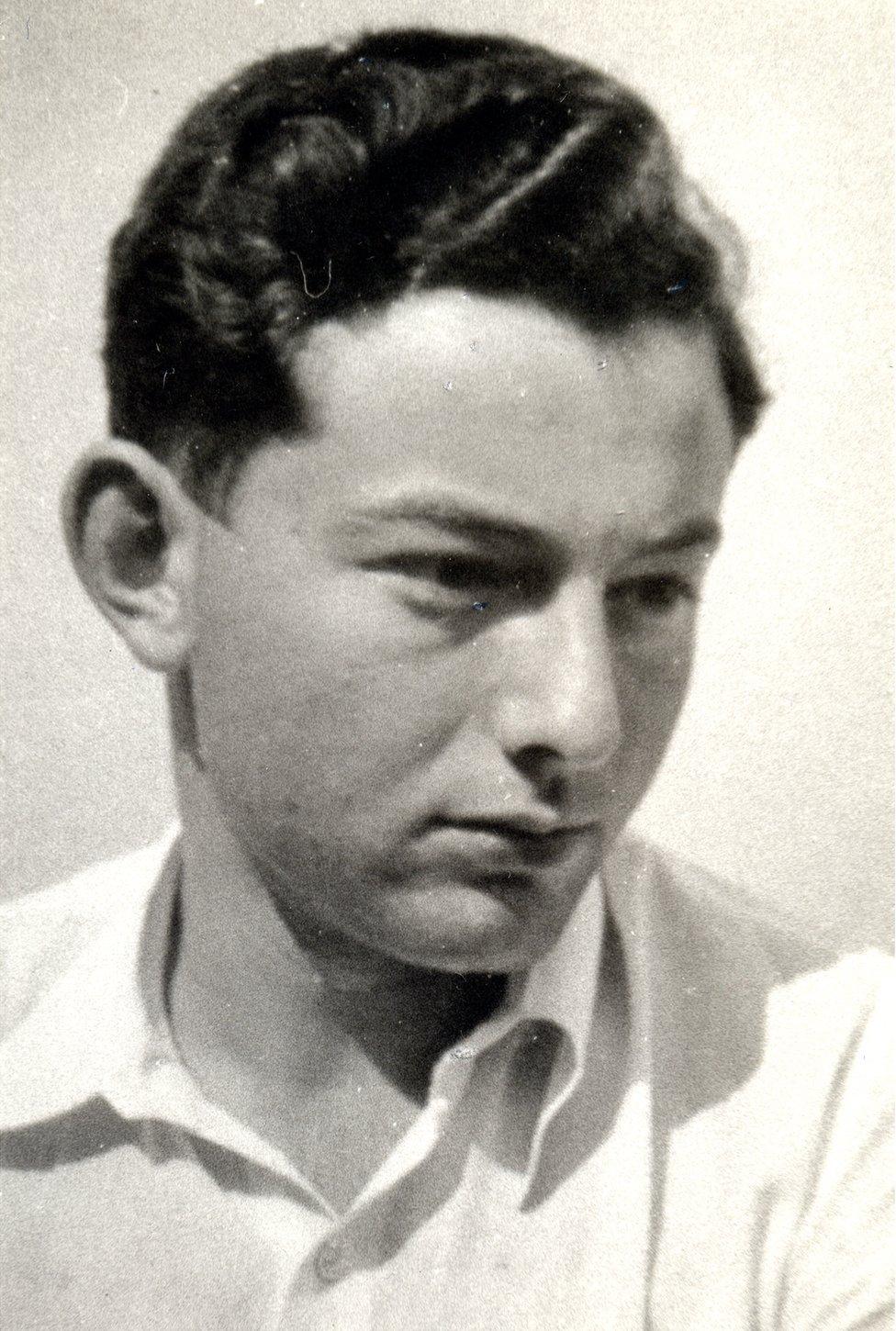

Jiri Franek: "This is my brother Frantisek Frischmann in 1940.
"Frantisek was a year older than me and he was more capable, smarter, better at school. He was also tall and strong, a real looker. He attracted girls from at least 20km (12 miles) around.
"Our uncle wanted to pay my brother's way to the Swiss border to get him away from the Germans here. He even found a guide that for a lot of money promised to lead him there. From Switzerland he was then supposed to go to some addresses in France.
"It was all arranged, and our family knew about it, but said: 'In any case he has to finish his studies and graduate'.
"But during this time the Germans occupied Paris. And Paris was where my brother was supposed to be going.
"So in the end my brother didn't escape; he was deported to Auschwitz and didn't survive. But it's a testament, in this case a bitter one, to the value that was placed on education."
Holocaust survivors: The families who weren’t meant to live

Romania
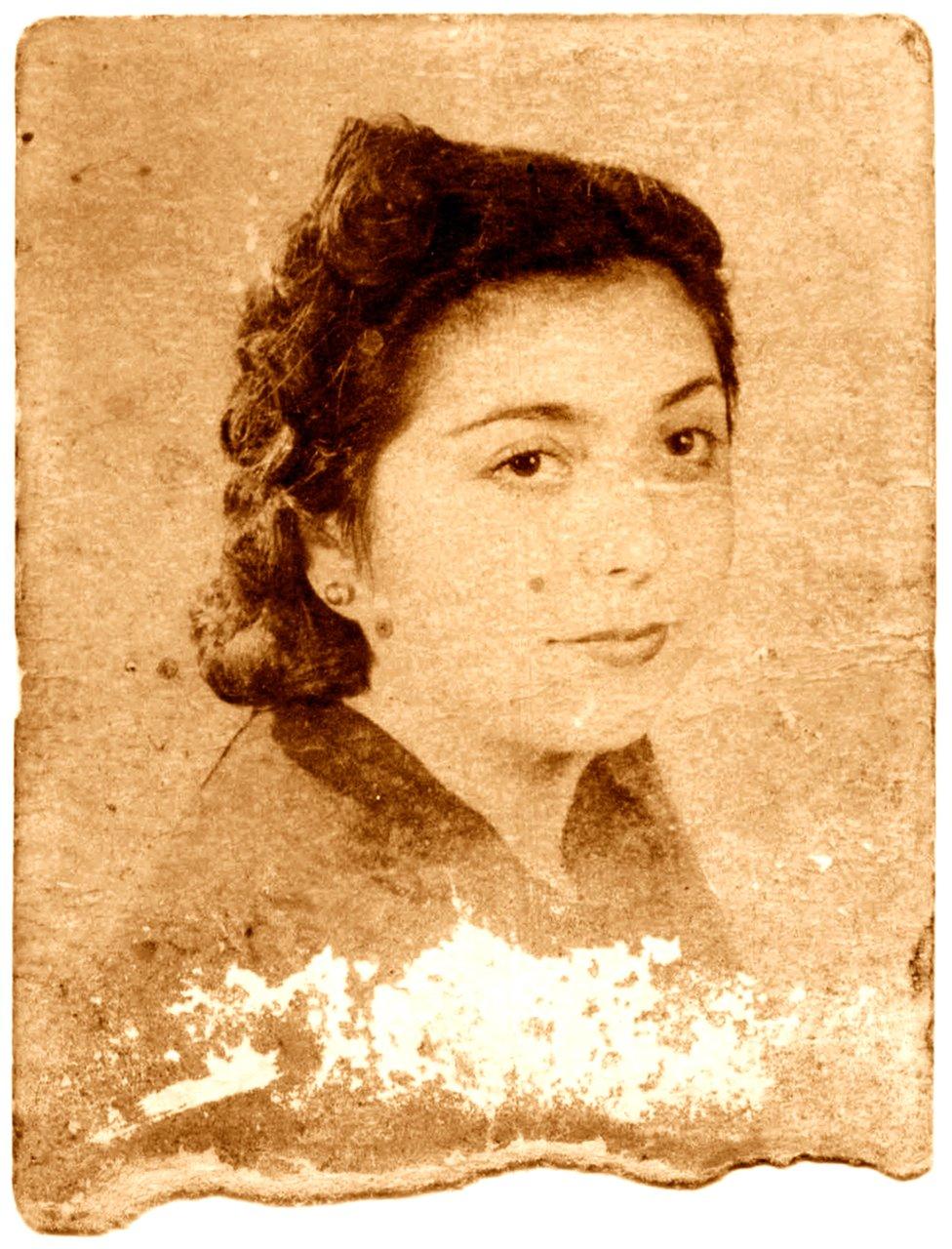

Estera Sava: "This is my sister, Anuta Martinet.
"My sister's dream had always been to become a doctor. After she graduated high school with the highest grades, she left for Iasi, to pass the admission exam at the Medical School.
"But in Iasi, those anti-Semitic movements had already begun. They told her 'You, jidanii, go home. We have no need for Jewish doctors!'
"She decided to study abroad and left for Padua, Italy. In June 1939 the [medical] exams came. She got the highest grades! But she told our father: 'Father, I'm not going back. It's not a high quality life there. I'm going to France!' We had a relative there, so she left for Montpellier.
"She studied there, married a Catholic man, and was close to getting her degree.
"[It was] for nothing. The Germans took her and we were told she helped in various camps, even in Auschwitz. Then they killed her."

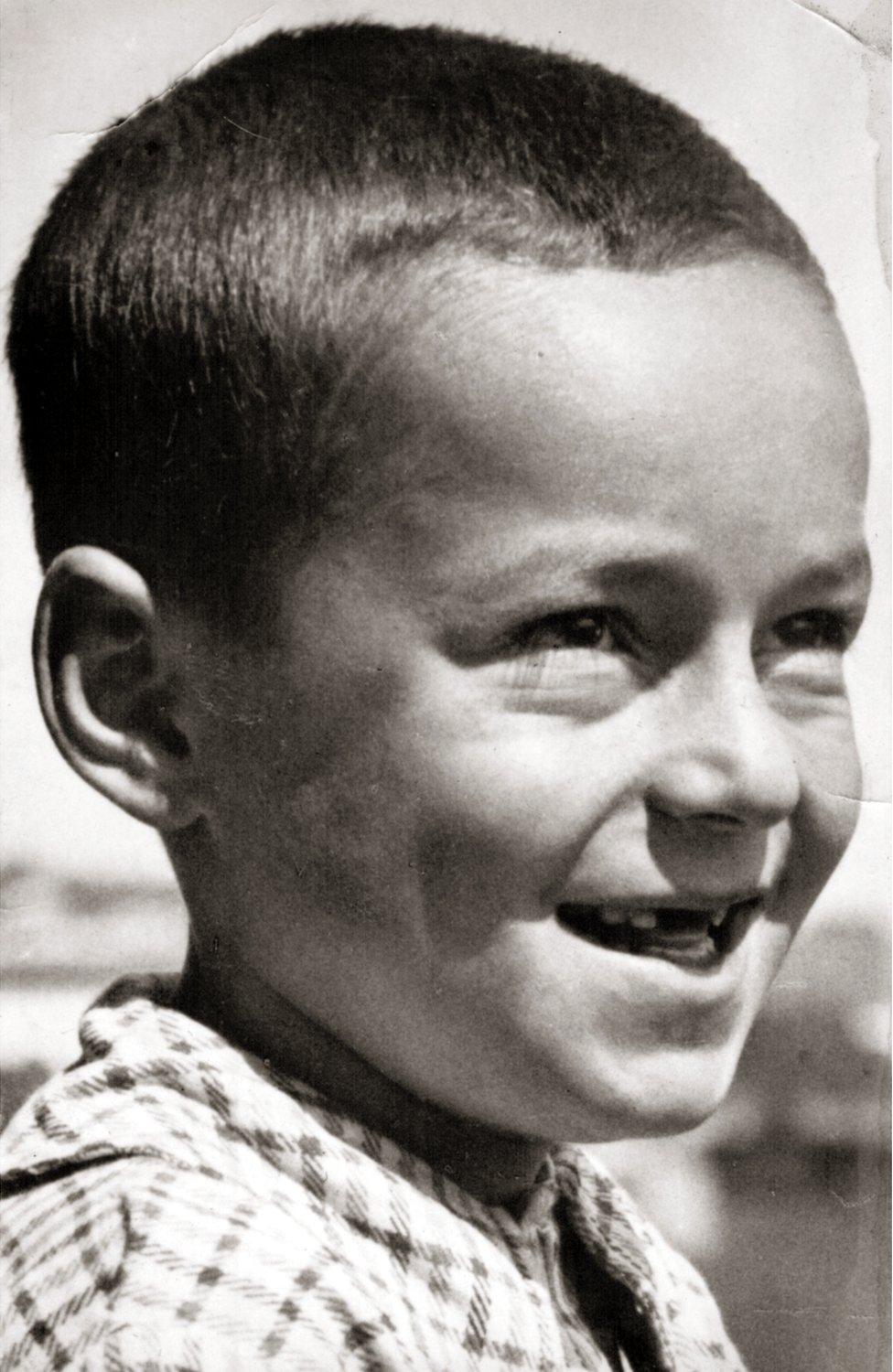

Stefan Guth: "[This is] Tomi Honig, my cousin.
"He was the son of my father's sister, Bella. She married a Jewish man named Miklos Honig. Miklos was the administrator of the restaurant of the fanciest hotel in Oradea and Bella was a housewife. She had two sons, Otto and Tomi.
"My father was very fond of his sister and whenever he went to Oradea, he would stay in her house.
"When the war broke out, [my father] waited for them to come to Brasov. But he waited and waited and nobody showed up. And after a while the news came that Jews from Transylvania had been deported.
"The only one who came back was Miklos's brother. He survived, and brought news that all the others were dead, including Tomi."

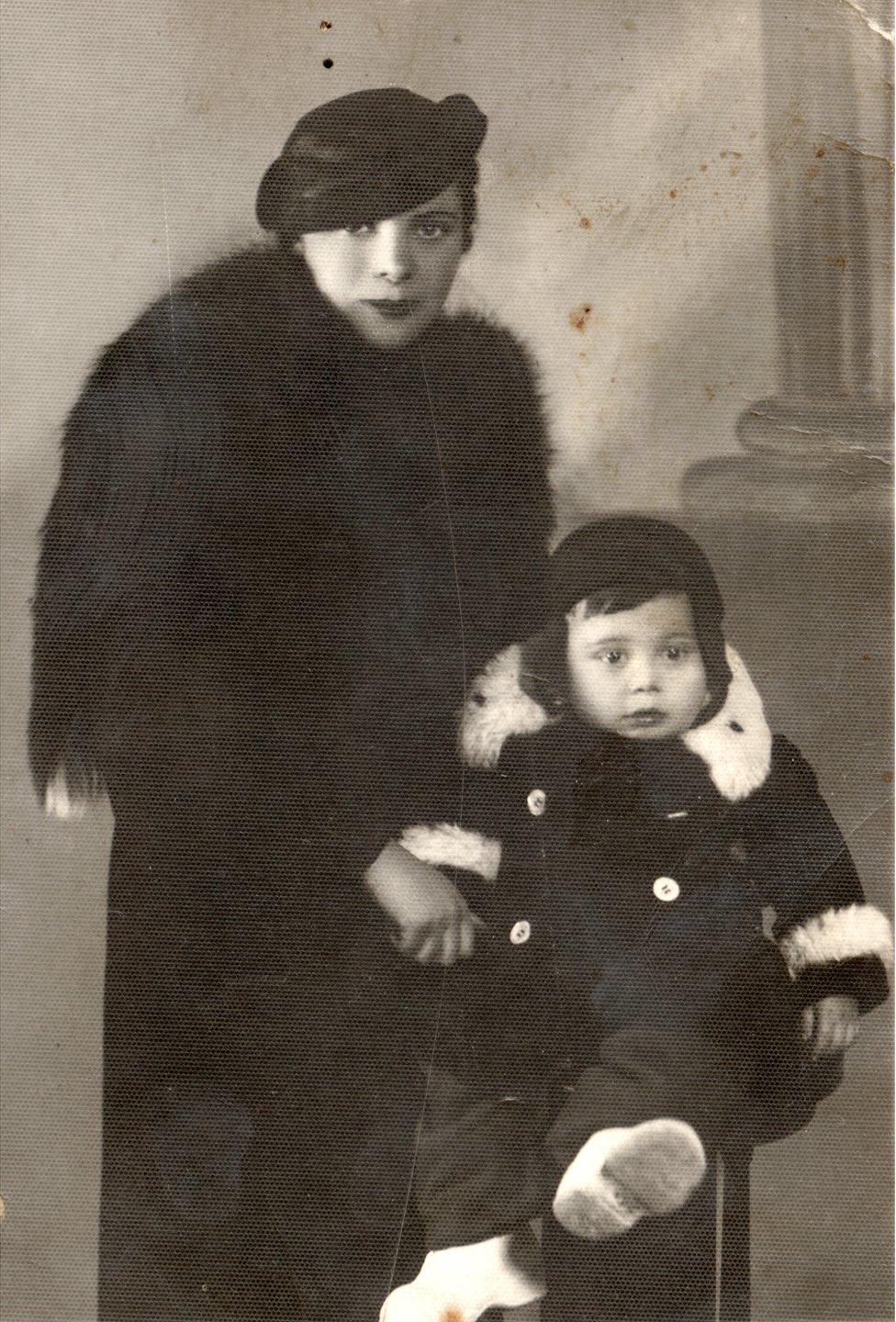

Mihaly Eisikovits: "This is Bozsi, the younger sister of my mother Rozsi, and her daughter.
"My mother came from a family of seven siblings. Only one of them survived deportation to Auschwitz.
"Bozsi married Dezso, a corn-merchant from Nagysarmas and they lived in Kolozsvar. Bozsi and Dezso had two children, a son, Andris, and a daughter, who is in this picture.
"The son was around five, the daughter was one and a half or maybe two years old when they were deported. The whole family perished in Auschwitz in 1944."

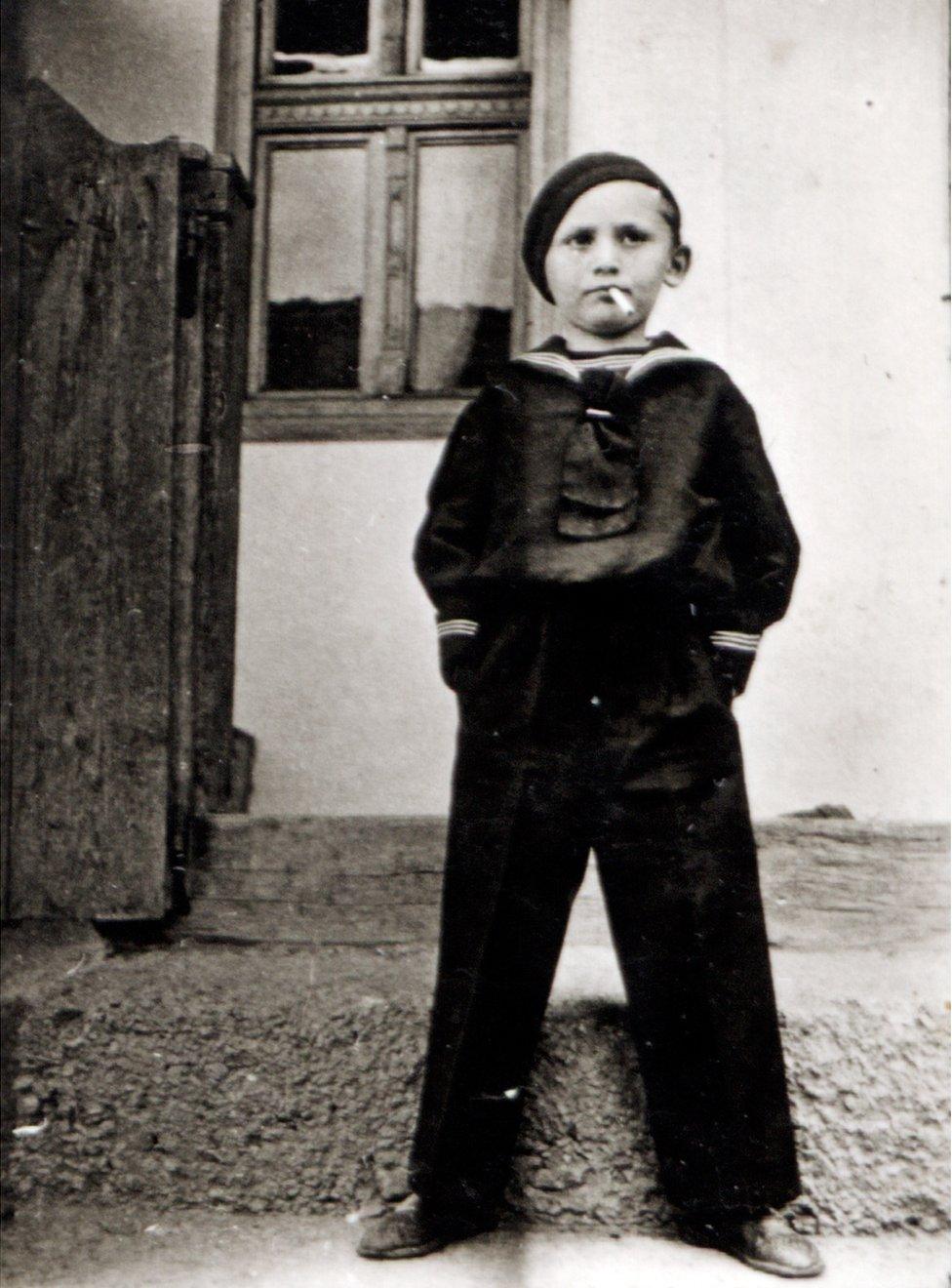

Elza Fulop: "This is Tibor Szinetar, the boy of my sister Margit.
"He was the only nephew my sisters and brother had. You can imagine how much love he got from all of us!
"At Tibor's bar mitzvah (coming of age ceremony) he thanked his parents for raising him and when he got to my father - even now, remembering this makes me cry - the poor child was overwhelmed with emotion: 'As for you, Grandpa, I don't know how to thank you...' And the child was unable to go on; he hugged his grandfather and they were both crying, and the whole congregation was crying.
"He lived with us in Aghiresu in the countryside. He would stand in the courtyard and the chickens, geese and ducks would sit on his shoulder and on his head. He knew the names of every calf or cow our neighbours had.
"If he was in the street and saw an elderly man, he would take his hand and help him get to the other side. He was an extraordinary child!
"When he got older, his parents took him to Cluj. He was 15 when [the Germans] deported him. They murdered him in Auschwitz."

Hungary
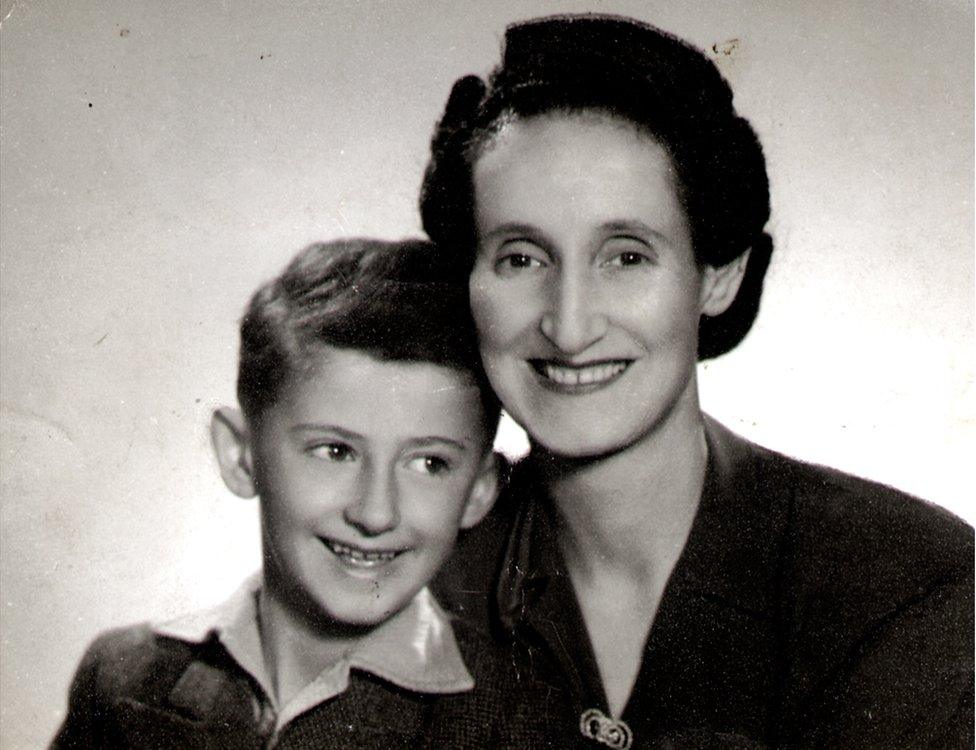

Marta Feher: "This is Bozsi and her son Imike.
"Bozsi was the wife of my mother's brother Nandor. I'm pretty sure the picture was taken in early 1944.
"The Germans came in 1944. Many men were sent to forced labour and it was the old people, women and children who were sent to the camps in May.
"Bozsi and Imike were taken to Auschwitz directly."

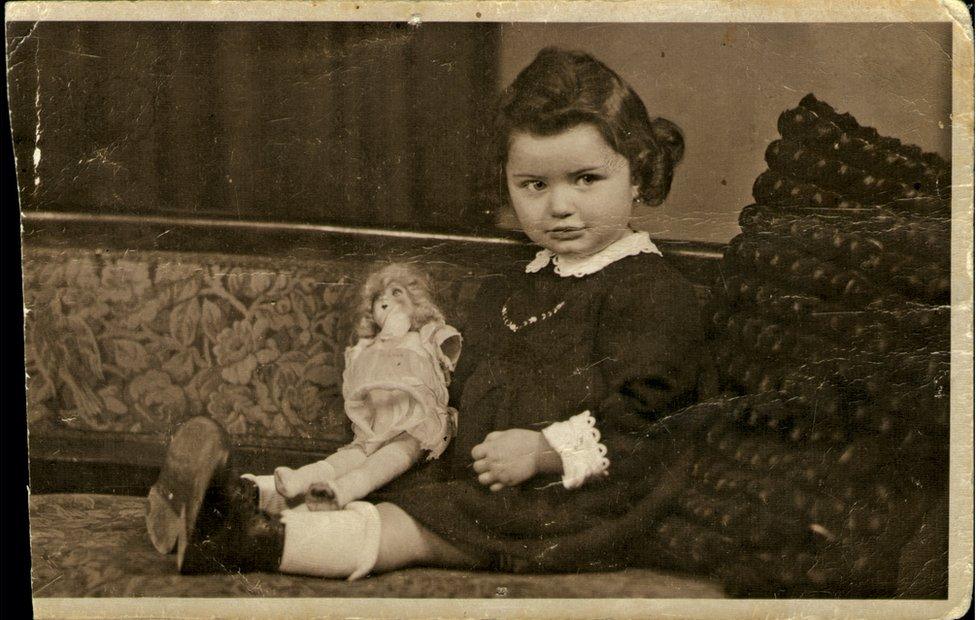
Erno Schwarz: "This is my little daughter, Rozsi Schwarz in Pesterzsebet in 1939.
"I met my wife when I was at the Rebenwurzl factory.
"The wedding was in 1936 in the Kazinczy [Street synagogue]. It was packed. Both floors were full of spectators, and so many stood in the yard that some didn't fit. All the butchers were there.
"My wife, she was taken with the two children. It was the last transport, no one returned from that.
"I don't remember when I found out that my family was taken to Auschwitz. I had been in forced labour."
All photos copyright Centropa.